#grass roots
Text

A.2.16 Does anarchism require “perfect” people to work?
No. Anarchy is not a utopia, a “perfect” society. It will be a human society, with all the problems, hopes, and fears associated with human beings. Anarchists do not think that human beings need to be “perfect” for anarchy to work. They only need to be free. Thus Christie and Meltzer:
”[A] common fallacy [is] that revolutionary socialism [i.e. anarchism] is an ‘idealisation’ of the workers and [so] the mere recital of their present faults is a refutation of the class struggle … it seems morally unreasonable that a free society … could exist without moral or ethical perfection. But so far as the overthrow of [existing] society is concerned, we may ignore the fact of people’s shortcomings and prejudices, so long as they do not become institutionalised. One may view without concern the fact … that the workers might achieve control of their places of work long before they had acquired the social graces of the ‘intellectual’ or shed all the prejudices of the present society from family discipline to xenophobia. What does it matter, so long as they can run industry without masters? Prejudices wither in freedom and only flourish while the social climate is favourable to them … What we say is … that once life can continue without imposed authority from above, and imposed authority cannot survive the withdrawal of labour from its service, the prejudices of authoritarianism will disappear. There is no cure for them other than the free process of education.” [The Floodgates of Anarchy, pp. 36–7]
Obviously, though, we think that a free society will produce people who are more in tune with both their own and others individuality and needs, thus reducing individual conflict. Remaining disputes would be solved by reasonable methods, for example, the use of juries, mutual third parties, or community and workplace assemblies (see section I.5.8 for a discussion of how could be done for anti-social activities as well as disputes).
Like the “anarchism-is-against-human-nature” argument (see section A.2.15), opponents of anarchism usually assume “perfect” people — people who are not corrupted by power when placed in positions of authority, people who are strangely unaffected by the distorting effects of hierarchy, privilege, and so forth. However, anarchists make no such claims about human perfection. We simply recognise that vesting power in the hands of one person or an elite is never a good idea, as people are not perfect.
It should be noted that the idea that anarchism requires a “new” (perfect) man or woman is often raised by the opponents of anarchism to discredit it (and, usually, to justify the retention of hierarchical authority, particularly capitalist relations of production). After all, people are not perfect and are unlikely ever to be. As such, they pounce on every example of a government falling and the resulting chaos to dismiss anarchism as unrealistic. The media loves to proclaim a country to be falling into “anarchy” whenever there is a disruption in “law and order” and looting takes place.
Anarchists are not impressed by this argument. A moment’s reflection shows why, for the detractors make the basic mistake of assuming an anarchist society without anarchists! (A variation of such claims is raised by the right-wing “anarcho”-capitalists to discredit real anarchism. However, their “objection” discredits their own claim to be anarchists for they implicitly assume an anarchist society without anarchists!). Needless to say, an “anarchy” made up of people who still saw the need for authority, property and statism would soon become authoritarian (i.e. non-anarchist) again. This is because even if the government disappeared tomorrow, the same system would soon grow up again, because “the strength of the government rests not with itself, but with the people. A great tyrant may be a fool, and not a superman. His strength lies not in himself, but in the superstition of the people who think that it is right to obey him. So long as that superstition exists it is useless for some liberator to cut off the head of tyranny; the people will create another, for they have grown accustomed to rely on something outside themselves.” [George Barrett, Objections to Anarchism, p. 355]
Hence Alexander Berkman:
“Our social institutions are founded on certain ideas; as long as the latter are generally believed, the institutions built on them are safe. Government remains strong because people think political authority and legal compulsion necessary. Capitalism will continue as long as such an economic system is considered adequate and just. The weakening of the ideas which support the evil and oppressive present day conditions means the ultimate breakdown of government and capitalism.” [What is Anarchism?, p. xii]
In other words, anarchy needs anarchists in order to be created and survive. But these anarchists need not be perfect, just people who have freed themselves, by their own efforts, of the superstition that command-and-obedience relations and capitalist property rights are necessary. The implicit assumption in the idea that anarchy needs “perfect” people is that freedom will be given, not taken; hence the obvious conclusion follows that an anarchy requiring “perfect” people will fail. But this argument ignores the need for self-activity and self-liberation in order to create a free society. For anarchists, “history is nothing but a struggle between the rulers and the ruled, the oppressors and the oppressed.” [Peter Kropotkin, Act for Yourselves, p. 85] Ideas change through struggle and, consequently, in the struggle against oppression and exploitation, we not only change the world, we change ourselves at the same time. So it is the struggle for freedom which creates people capable of taking the responsibility for their own lives, communities and planet. People capable of living as equals in a free society, so making anarchy possible.
As such, the chaos which often results when a government disappears is not anarchy nor, in fact, a case against anarchism. It simple means that the necessary preconditions for creating an anarchist society do not exist. Anarchy would be the product of collective struggle at the heart of society, not the product of external shocks. Nor, we should note, do anarchists think that such a society will appear “overnight.” Rather, we see the creation of an anarchist system as a process, not an event. The ins-and-outs of how it would function will evolve over time in the light of experience and objective circumstances, not appear in a perfect form immediately (see section H.2.5 for a discussion of Marxist claims otherwise).
Therefore, anarchists do not conclude that “perfect” people are necessary anarchism to work because the anarchist is “no liberator with a divine mission to free humanity, but he is a part of that humanity struggling onwards towards liberty.” As such, ”[i]f, then, by some external means an Anarchist Revolution could be, so to speak, supplied ready-made and thrust upon the people, it is true that they would reject it and rebuild the old society. If, on the other hand, the people develop their ideas of freedom, and they themselves get rid of the last stronghold of tyranny — the government — then indeed the revolution will be permanently accomplished.” [George Barrett, Op. Cit., p. 355]
This is not to suggest that an anarchist society must wait until everyone is an anarchist. Far from it. It is highly unlikely, for example, that the rich and powerful will suddenly see the errors of their ways and voluntarily renounce their privileges. Faced with a large and growing anarchist movement, the ruling elite has always used repression to defend its position in society. The use of fascism in Spain (see section A.5.6) and Italy (see section A.5.5) show the depths the capitalist class can sink to. Anarchism will be created in the face of opposition by the ruling minorities and, consequently, will need to defend itself against attempts to recreate authority (see section H.2.1 for a refutation of Marxist claims anarchists reject the need to defend an anarchist society against counter-revolution).
Instead anarchists argue that we should focus our activity on convincing those subject to oppression and exploitation that they have the power to resist both and, ultimately, can end both by destroying the social institutions that cause them. As Malatesta argued, “we need the support of the masses to build a force of sufficient strength to achieve our specific task of radical change in the social organism by the direct action of the masses, we must get closer to them, accept them as they are, and from within their ranks seek to ‘push’ them forward as much as possible.” [Errico Malatesta: His Life and Ideas, pp. 155–6] This would create the conditions that make possible a rapid evolution towards anarchism as what was initially accepted by a minority “but increasingly finding popular expression, will make its way among the mass of the people” and “the minority will become the People, the great mass, and that mass rising up against property and the State, will march forward towards anarchist communism.” [Kropotkin, Words of a Rebel, p. 75] Hence the importance anarchists attach to spreading our ideas and arguing the case for anarchism. This creates conscious anarchists from those questioning the injustices of capitalism and the state.
This process is helped by the nature of hierarchical society and the resistance it naturally developed in those subject to it. Anarchist ideas develop spontaneously through struggle. As we discuss in section I.2.3, anarchistic organisations are often created as part of the resistance against oppression and exploitation which marks every hierarchical system and can., potentially, be the framework of a few society. As such, the creation of libertarian institutions is, therefore, always a possibility in any situation. A peoples’ experiences may push them towards anarchist conclusions, namely the awareness that the state exists to protect the wealthy and powerful few and to disempower the many. That while it is needed to maintain class and hierarchical society, it is not needed to organise society nor can it do so in a just and fair way for all. This is possible. However, without a conscious anarchist presence any libertarian tendencies are likely to be used, abused and finally destroyed by parties or religious groups seeking political power over the masses (the Russian Revolution is the most famous example of this process). It is for that reason anarchists organise to influence the struggle and spread our ideas (see section J.3 for details). For it is the case that only when anarchist ideas “acquire a predominating influence” and are “accepted by a sufficiently large section of the population” will we “have achieved anarchy, or taken a step towards anarchy.” For anarchy “cannot be imposed against the wishes of the people.” [Malatesta, Op. Cit., p. 159 and p. 163]
So, to conclude, the creation of an anarchist society is not dependent on people being perfect but it is dependent on a large majority being anarchists and wanting to reorganise society in a libertarian manner. This will not eliminate conflict between individuals nor create a fully formed anarchist humanity overnight but it will lay the ground for the gradual elimination of whatever prejudices and anti-social behaviour that remain after the struggle to change society has revolutionised those doing it.
#faq#anarchy faq#revolution#anarchism#daily posts#communism#anti capitalist#anti capitalism#late stage capitalism#organization#grassroots#grass roots#anarchists#libraries#leftism#social issues#economy#economics#climate change#climate crisis#climate#ecology#anarchy works#environmentalism#environment#solarpunk#anti colonialism#mutual aid#cops#police
33 notes
·
View notes
Text
Wow! I found the article link about the “30 proud, self-described gutter-pagan, mostly queer dirtbags” who erased 1.6 million in medical debt. It’s possible. And it proves how crooked our pay-for medical system really is. AMAZING. (I also Re-posted the tumblr I saw it on first—check out their comments, which help explain how it was done in laymen’s terms).

#social justice#medicine#debt#medication#queer#pagans of tumblr#philadelphia#debt relief#medical corruption#grass roots#lgbtqia
38 notes
·
View notes
Text
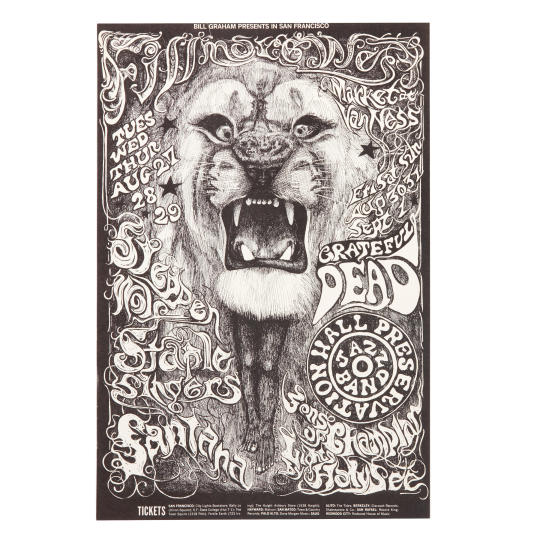
Santana with Grateful Dead, Steppenwolf, Staple Singers, etc. at Fillmore West, August 27-September 2, [1968]. Artwork by Lee Conklin. First printing on uncoated stock. Classic artwork that was later developed into the cover of Santana's classic debut album.
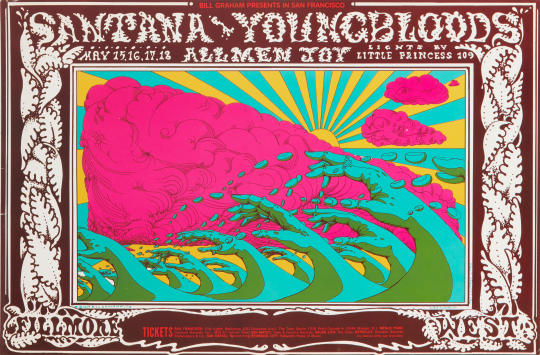
Santana with Youngbloods and Allmen Joy at Fillmore West, May 15-18, [1969]. Artwork by Lee Conklin.
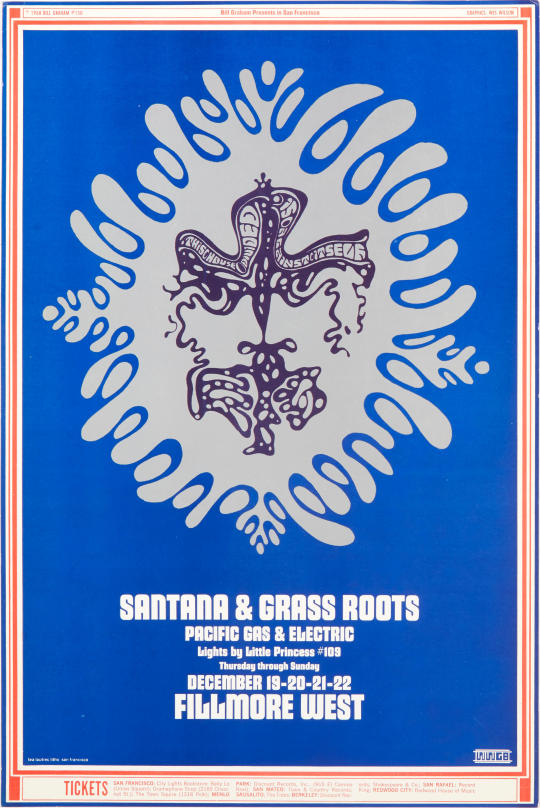
Santana with Grass Roots and Pacific Gas & Electric at Fillmore West, December 19-22, [1968]. Artwork by Wes Wilson.

Big Brother And The Holding Company And Santana Fillmore West Concert Poster. Artwork by Rick Griffin, promoting a series of shows in San Francisco from September 12-14, with support act Chicago Transit Authority.
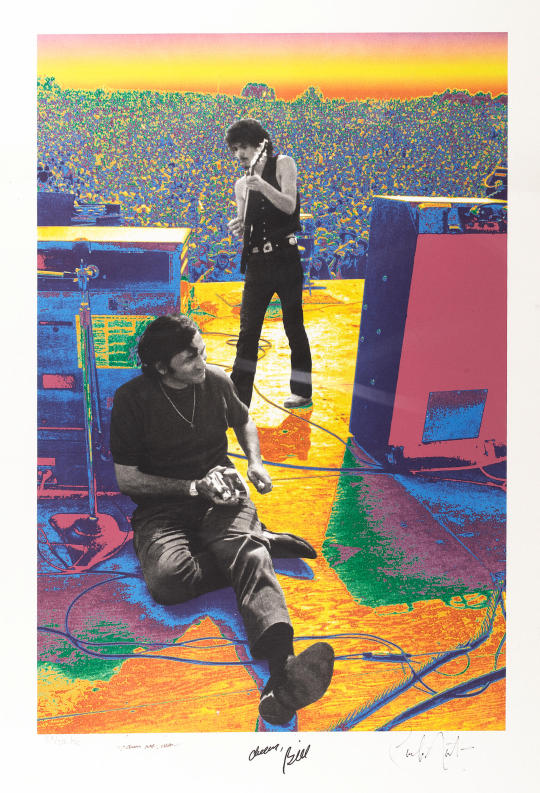
'Carlos Santana & Bill Graham August 16, 1969' - This print is produced from two different black and white photographs taken by Baron Wolman.
#carlos santana#santana#bill graham#baron wolman#Big Brother And The Holding Company#rick griffin#concert posters#Chicago Transit Authority#chicago#Grass Roots#Pacific Gas & Electric#filmore west#Lee Conklin#Allmen Joy#duane allman#gregg allman
11 notes
·
View notes
Text
instagram
Get out the word get out the vote!
#get out the vote#women’s rights#bodily autonomy#protect reproductive rights#virginia#wearethemajority#thank you#on the ground#democrats#grass roots#talk to each other#speak up#amplify#Instagram
8 notes
·
View notes
Text
Shopper's Delight: Independent Bookstore Day (Tomorrow!)
In honor of Independent Bookstore Day tomorrow (April 29th), here are some of our favorite indies along with some handy links to special, signed (including bookplated), and/or personalized editions that can ship right to you! (Stores are listed alphabetically by state.) Please note that some of these are preorders, and some are already published titles.
Note: Make sure you request the copy be…

View On WordPress
#Anderson&039;s Bookshop#Blue WIllow Bookshop#Books of Wonder#Buffalo Street Books#Charis Books and More#East City Bookshop#Grass Roots#Main Street Books#Mysterious Galaxy#Northshire Books#One More Page#Parnassus Books#Porter Square Books#Powell&039;s#RJ Julia#Schuler&039;s Books#Swamp Fox Bookstore#The Dog Eared Book#The Ripped Bodice#The Strand#Third Place Books#White Whale Bookstore
30 notes
·
View notes
Text

One of our own 🖤🤍
#swansea city afc#football#efl#championship#tier 2#liam Cullen#futbol#soccer#pêl droed#cymru#Abertawe#wales#liberty stadium#swansea.com#pitch#home grown#grass roots#luke Williams
3 notes
·
View notes
Text
Kicking it Old School
Alright, so the (American) government being the asshole it is, they got mad that we did the things that we have written into the constitution, namely community organizing and using our right to free speech and assembly to voice decent to the existing genocide occurring in Palestine, opposing the misuse of our tax dollars to fund said genocide, and point out that while they can not be bothered to reach across the aisle on any other issue that would benefit Americans, namely utilizing those billions and in some case TRILLIONS of tax dollars to provide help to struggling people in our country, they could agree to attempt to silence the millions of voices across the nation for their use of a platform that was developed outside of the country because of a hypothetical fear that they manufactured of a foreign nation doing the thing that American made social media platforms (including big t that I'm posting from right now) are already doing. Even though the data is housed locally for American users by an American company. Even though the tenuous "fear" they have is that the parent company of Tiktok, Byte Dance, which is located in China, has no direct control over Tiktok itself, which is based in Singapore, an entirely separate country that the Chinese Government does not have sway over (Just a reminder for Senator Cotton, the ignorant racist who refused to listen to the information provided by the CEO of Tiktok, a Singaporian National).
So the manufactured fear has allowed them to oppose a vast network of community organization, with no real enforcement to be had, which is a not so polite reminder that VPN's exist, and can be used to evade all of this. But regardless, not everyone is going to be able to afford the VPN option, and there should be a free option for community organization. So here we are, coming back to our roots, the OG, the classic, rebirth of the 2010's era, the tumblr blog has returned. I deleted my original tumblr years ago. I'm a public person, to the point that my own home is highly visible, albeit a bit tedious to watch since the one space people can see in to is where I sleep and watch tv. But being that my content was always intended to be humerous, if a bit jaded and dark, I figure now is the time to use my extensive talents and creative skills start doing something that I've wanted to do for years. If this takes off, I might transition to a full time hosted blog, but I'm a fan of grass roots starting points, and truthfully, there's not much more grass roots than tumblr. Additionally, the tools and skills of the trade for podcasting are available to me as well, and I'm not opposed to it, since I already knowledgable in the creation, and I could easily do things with it. Who knows, maybe this is the start of my full time professional career, but who knows. Regardless, I'm going to list a few things you can expect from me on my page moving forward.
- Anime content
LOOOOOVE me some Anime. I don't interact a ton with the fandoms, mostly because there are some super questionable and problematic ideas (ships) floating around the internet. That being the case, I'll mostly talk about the ones I love most, namely One Piece, because I live for the display of leftist rhetoric and dispensation of Justice and Joyboy Wonder that is Luffy and his crew.
-Politics
I'm more than a little comfortable discussing politics. I've been involved as a volunteer lobbyist in the past, and I engage with and regularly review content revolving around national and international politics, and I think it's important to not avoid discussing it. My takes will not always be perfect, but I generally center them around the ideas that people should always come before companies, and people can generally make decisions for themselves regarding self identity and bodily autonomy. Science will never be political to me, and regardless of my personal religious beliefs, science will make the decisions for me regarding health and wellness.
-Tea
I am a lover of all things tea. I have a talent I have developed for a while now, of making home brewed loose leaf tea, and I enjoy sharing that knowledge and information with others. Tea is very much a special interest for me, on par with One Piece and Minecraft. So you will definitely see stuff like tea recipes and resources from me regularly. I have for some time now had a dream of owning my own tea shop, and I will absolutely achieve that some day. And yes, my love of this stems from my love of Uncle Iroh.
-Cats and Animals in General
I have two cats, Shadow, who is pictured in my current PFP, and Poppie, the gremlin boy. I intend to someday have a service dog again, and when that happens, you will be introduced to said dog, but for now, it's me and my demons. I have this desire to have a small plot of land with a few farm animals to watch over, namely a few hens for eggs, maybe a mini-cow or some goats to produce fertilizer, but also I want live in the middle of the woods, so like, who knows how that will shake out. I'm a four seasons kind of person, and northern woods tend to have that. That is for the future to decide, but for now, it's just me and my cats.
-Lifestyle stuff
The category is broad, but includes all kinds of things. Home tech, cooking, discussions on queerness, and life tips and advice. I tend to write some of these from the perspective of me to my past self, telling things I wish I had known then that I know now.
-Music
Less focused on it's discussion, and more on presentation. I have a decently expansive taste, that only really excludes modern pop country, which I view as terrible. That said, old country, such as Dolly Parton, Johnny Cash, and the like, are among some of my favorites. That said, I'm also a hiphop head, and I've been to more underground rap shows than any other type of live show.
-Mental Health
I'm mentally ill. I have been diagnosed with three separate mental health disorders, as well as ADD, and although I have never been officially tested, I am more than likely on the Autism Spectrum. I have lived a rather colorful life full of interesting choices, and I was not always given the grace I needed to grow. So from time to time, I'll have things to say on mental health. I'm not one to answer questions for others about their own mental health, because I know this is something that needs to be handled by professionals, but I will always do my best to be up front and honest, because I hate the idea that the stigma of mental health problems would prevent someone from living a full life.
I am looking forward to this. If things on tiktok continue, I'm still going to try to be active on tumblr, because diversifying your engagement can be beneficial. If you want more info about me, check out my other pages, including my link tree.
Stay safe everyone.
#mental health#mental illness#cats#lifestyle#queer community#grass roots#blogging#one piece#anime and manga#art#poetry#writing
4 notes
·
View notes
Text
I’m a grass roots revolutionary, of corse I understand what needs to be done on an individual and communal basis to achieve well defined goals!
I’m a grass roots revolutionary, of corse I use and support public transportation!
I’m a grass roots revolutionary, of corse I plan on doing trash clean ups in the areas that need it the most!
I’m a grass roots revolutionary, of corse people think my way of thinking is weird!
I’m a grass roots revolutionary, of corse im going to listen to, try my best to understand, and respect the rights and voices of black, brown, and First Nations communities!
#joining a trend#grass roots#revolutionary#make a difference#love one another#leftism#leftist#left wing#revolution#tiktok trend
2 notes
·
View notes
Text

A.2.15 What about “human nature”?
Anarchists, far from ignoring “human nature,” have the only political theory that gives this concept deep thought and reflection. Too often, “human nature” is flung up as the last line of defence in an argument against anarchism, because it is thought to be beyond reply. This is not the case, however. First of all, human nature is a complex thing. If, by human nature, it is meant “what humans do,” it is obvious that human nature is contradictory — love and hate, compassion and heartlessness, peace and violence, and so on, have all been expressed by people and so are all products of “human nature.” Of course, what is considered “human nature” can change with changing social circumstances. For example, slavery was considered part of “human nature” and “normal” for thousands of years. Homosexuality was considered perfectly normal by the ancient Greeks yet thousands of years later the Christian church denounced it as unnatural. War only become part of “human nature” once states developed. Hence Chomsky:
“Individuals are certainly capable of evil … But individuals are capable of all sorts of things. Human nature has lots of ways of realising itself, humans have lots of capacities and options. Which ones reveal themselves depends to a large extent on the institutional structures. If we had institutions which permitted pathological killers free rein, they’d be running the place. The only way to survive would be to let those elements of your nature manifest themselves.
“If we have institutions which make greed the sole property of human beings and encourage pure greed at the expense of other human emotions and commitments, we’re going to have a society based on greed, with all that follows. A different society might be organised in such a way that human feelings and emotions of other sorts, say, solidarity, support, sympathy become dominant. Then you’ll have different aspects of human nature and personality revealing themselves.” [Chronicles of Dissent, pp. 158]
Therefore, environment plays an important part in defining what “human nature” is, how it develops and what aspects of it are expressed. Indeed, one of the greatest myths about anarchism is the idea that we think human nature is inherently good (rather, we think it is inherently sociable). How it develops and expresses itself is dependent on the kind of society we live in and create. A hierarchical society will shape people in certain (negative) ways and produce a “human nature” radically different from a libertarian one. So “when we hear men [and women] saying that Anarchists imagine men [and women] much better than they really are, we merely wonder how intelligent people can repeat that nonsense. Do we not say continually that the only means of rendering men [and women] less rapacious and egotistic, less ambitious and less slavish at the same time, is to eliminate those conditions which favour the growth of egotism and rapacity, of slavishness and ambition?” [Peter Kropotkin, Act for Yourselves, p. 83]
As such, the use of “human nature” as an argument against anarchism is simply superficial and, ultimately, an evasion. It is an excuse not to think. “Every fool,” as Emma Goldman put it, “from king to policemen, from the flatheaded parson to the visionless dabbler in science, presumes to speak authoritatively of human nature. The greater the mental charlatan, the more definite his insistence on the wickedness and weakness of human nature. Yet how can any one speak of it to-day, with every soul in prison, with every heart fettered, wounded, and maimed?” Change society, create a better social environment and then we can judge what is a product of our natures and what is the product of an authoritarian system. For this reason, anarchism “stands for the liberation of the human mind from the dominion of religion; the liberation of the human body from the dominion of property; liberation from the shackles and restraint of government.” For ”[f]reedom, expansion, opportunity, and above all, peace and repose, alone can teach us the real dominant factors of human nature and all its wonderful possibilities.” [Red Emma Speaks, p. 73]
This does not mean that human beings are infinitely plastic, with each individual born a tabula rasa (blank slate) waiting to be formed by “society” (which in practice means those who run it). As Noam Chomsky argues, “I don’t think its possible to give a rational account of the concept of alienated labour on that assumption [that human nature is nothing but a historical product], nor is it possible to produce something like a moral justification for the commitment to some kind of social change, except on the basis of assumptions about human nature and how modifications in the structure of society will be better able to conform to some of the fundamental needs that are part of our essential nature.” [Language and Politics, p. 215] We do not wish to enter the debate about what human characteristics are and are not “innate.” All we will say is that human beings have an innate ability to think and learn — that much is obvious, we feel — and that humans are sociable creatures, needing the company of others to feel complete and to prosper. Moreover, they have the ability to recognise and oppose injustice and oppression (Bakunin rightly considered ”the power to think and the desire to rebel” as “precious faculties.” [God and the State, p. 9]).
These three features, we think, suggest the viability of an anarchist society. The innate ability to think for oneself automatically makes all forms of hierarchy illegitimate, and our need for social relationships implies that we can organise without the state. The deep unhappiness and alienation afflicting modern society reveals that the centralisation and authoritarianism of capitalism and the state are denying some innate needs within us. In fact, as mentioned earlier, for the great majority of its existence the human race has lived in anarchic communities, with little or no hierarchy. That modern society calls such people “savages” or “primitive” is pure arrogance. So who can tell whether anarchism is against “human nature”? Anarchists have accumulated much evidence to suggest that it may not be.
As for the charge the anarchists demand too much of “human nature,” it is often non anarchists who make the greatest claims on it. For “while our opponents seem to admit there is a kind of salt of the earth — the rulers, the employers, the leaders — who, happily enough, prevent those bad men — the ruled, the exploited, the led — from becoming still worse than they are” we anarchists “maintain that both rulers and ruled are spoiled by authority” and ”both exploiters and exploited are spoiled by exploitation.” So “there is [a] difference, and a very important one. We admit the imperfections of human nature, but we make no exception for the rulers. They make it, although sometimes unconsciously, and because we make no such exception, they say that we are dreamers.” [Peter Kropotkin, Op. Cit., p. 83] If human nature is so bad, then giving some people power over others and hoping this will lead to justice and freedom is hopelessly utopian.
Moreover, as noted, Anarchists argue that hierarchical organisations bring out the worse in human nature. Both the oppressor and the oppressed are negatively affected by the authoritarian relationships so produced. “It is a characteristic of privilege and of every kind of privilege,” argued Bakunin, “to kill the mind and heart of man … That is a social law which admits no exceptions … It is the law of equality and humanity.” [God and the State, p. 31] And while the privileged become corrupted by power, the powerless (in general) become servile in heart and mind (luckily the human spirit is such that there will always be rebels no matter the oppression for where there is oppression, there is resistance and, consequently, hope). As such, it seems strange for anarchists to hear non-anarchists justify hierarchy in terms of the (distorted) “human nature” it produces.
Sadly, too many have done precisely this. It continues to this day. For example, with the rise of “sociobiology,” some claim (with very little real evidence) that capitalism is a product of our “nature,” which is determined by our genes. These claims are simply a new variation of the “human nature” argument and have, unsurprisingly, been leapt upon by the powers that be. Considering the dearth of evidence, their support for this “new” doctrine must be purely the result of its utility to those in power — i.e. the fact that it is useful to have an “objective” and “scientific” basis to rationalise inequalities in wealth and power (for a discussion of this process see Not in Our Genes: Biology, Ideology and Human Nature by Steven Rose, R.C. Lewontin and Leon J. Kamin).
This is not to say that it does not hold a grain of truth. As scientist Stephen Jay Gould notes, “the range of our potential behaviour is circumscribed by our biology” and if this is what sociobiology means “by genetic control, then we can scarcely disagree.” However, this is not what is meant. Rather, it is a form of “biological determinism” that sociobiology argues for. Saying that there are specific genes for specific human traits says little for while ”[v]iolence, sexism, and general nastiness are biological since they represent one subset of a possible range of behaviours” so are “peacefulness, equality, and kindness.” And so “we may see their influence increase if we can create social structures that permit them to flourish.” That this may be the case can be seen from the works of sociobiologists themselves, who “acknowledge diversity” in human cultures while “often dismiss[ing] the uncomfortable ‘exceptions’ as temporary and unimportant aberrations.” This is surprising, for if you believe that “repeated, often genocidal warfare has shaped our genetic destiny, the existence of nonaggressive peoples is embarrassing.” [Ever Since Darwin, p. 252, p. 257 and p. 254]
Like the social Darwinism that preceded it, sociobiology proceeds by first projecting the dominant ideas of current society onto nature (often unconsciously, so that scientists mistakenly consider the ideas in question as both “normal” and “natural”). Bookchin refers to this as “the subtle projection of historically conditioned human values” onto nature rather than “scientific objectivity.” Then the theories of nature produced in this manner are transferred back onto society and history, being used to “prove” that the principles of capitalism (hierarchy, authority, competition, etc.) are eternal laws, which are then appealed to as a justification for the status quo! “What this procedure does accomplish,” notes Bookchin, “is reinforce human social hierarchies by justifying the command of men and women as innate features of the ‘natural order.’ Human domination is thereby transcribed into the genetic code as biologically immutable.” [The Ecology of Freedom, p. 95 and p. 92] Amazingly, there are many supposedly intelligent people who take this sleight-of-hand seriously.
This can be seen when “hierarchies” in nature are used to explain, and so justify, hierarchies in human societies. Such analogies are misleading for they forget the institutional nature of human life. As Murray Bookchin notes in his critique of sociobiology, a “weak, enfeebled, unnerved, and sick ape is hardly likely to become an ‘alpha’ male, much less retain this highly ephemeral ‘status.’ By contrast, the most physically and mentally pathological human rulers have exercised authority with devastating effect in the course of history.” This “expresses a power of hierarchical institutions over persons that is completely reversed in so-called ‘animal hierarchies’ where the absence of institutions is precisely the only intelligible way of talking about ‘alpha males’ or ‘queen bees.’” [“Sociobiology or Social Ecology”, Which way for the Ecology Movement?, p. 58] Thus what makes human society unique is conveniently ignored and the real sources of power in society are hidden under a genetic screen.
The sort of apologetics associated with appeals to “human nature” (or sociobiology at its worse) are natural, of course, because every ruling class needs to justify their right to rule. Hence they support doctrines that defined the latter in ways appearing to justify elite power — be it sociobiology, divine right, original sin, etc. Obviously, such doctrines have always been wrong … until now, of course, as it is obvious our current society truly conforms to “human nature” and it has been scientifically proven by our current scientific priesthood!
The arrogance of this claim is truly amazing. History hasn’t stopped. One thousand years from now, society will be completely different from what it is presently or from what anyone has imagined. No government in place at the moment will still be around, and the current economic system will not exist. The only thing that may remain the same is that people will still be claiming that their new society is the “One True System” that completely conforms to human nature, even though all past systems did not.
Of course, it does not cross the minds of supporters of capitalism that people from different cultures may draw different conclusions from the same facts — conclusions that may be more valid. Nor does it occur to capitalist apologists that the theories of the “objective” scientists may be framed in the context of the dominant ideas of the society they live in. It comes as no surprise to anarchists, however, that scientists working in Tsarist Russia developed a theory of evolution based on cooperation within species, quite unlike their counterparts in capitalist Britain, who developed a theory based on competitive struggle within and between species. That the latter theory reflected the dominant political and economic theories of British society (notably competitive individualism) is pure coincidence, of course.
Kropotkin’s classic work Mutual Aid, for example, was written in response to the obvious inaccuracies that British representatives of Darwinism had projected onto nature and human life. Building upon the mainstream Russian criticism of the British Darwinism of the time, Kropotkin showed (with substantial empirical evidence) that “mutual aid” within a group or species played as important a role as “mutual struggle” between individuals within those groups or species (see Stephan Jay Gould’s essay “Kropotkin was no Crackpot” in his book Bully for Brontosaurus for details and an evaluation). It was, he stressed, a “factor” in evolution along with competition, a factor which, in most circumstances, was far more important to survival. Thus co-operation is just as “natural” as competition so proving that “human nature” was not a barrier to anarchism as co-operation between members of a species can be the best pathway to advantage individuals.
To conclude. Anarchists argue that anarchy is not against “human nature” for two main reasons. Firstly, what is considered as being “human nature” is shaped by the society we live in and the relationships we create. This means a hierarchical society will encourage certain personality traits to dominate while an anarchist one would encourage others. As such, anarchists “do not so much rely on the fact that human nature will change as they do upon the theory that the same nature will act differently under different circumstances.” Secondly, change “seems to be one of the fundamental laws of existence” so “who can say that man [sic!] has reached the limits of his possibilities.” [George Barrett, Objections to Anarchism, pp. 360–1 and p. 360]
For useful discussions on anarchist ideas on human nature, both of which refute the idea that anarchists think human beings are naturally good, see Peter Marshall’s “Human nature and anarchism” [David Goodway (ed.), For Anarchism: History, Theory and Practice, pp. 127–149] and David Hartley’s “Communitarian Anarchism and Human Nature”. [Anarchist Studies, vol. 3, no. 2, Autumn 1995, pp. 145–164]
#faq#anarchy faq#revolution#anarchism#daily posts#communism#anti capitalist#anti capitalism#late stage capitalism#organization#grassroots#grass roots#anarchists#libraries#leftism#social issues#economy#economics#climate change#climate crisis#climate#ecology#anarchy works#environmentalism#environment#solarpunk#anti colonialism#mutual aid#cops#police
25 notes
·
View notes
Text
youtube

All of the lonely nights
Waiting for you to come, longing to hold you tight
I need you so desperately
Waiting for you to come bring all your love to me
But I'd wait a million years
Walk a million miles, cry a million tears
I'd swim the deepest sea
Climb the highest hill, just to have you near me
As love is reality
When you are near to me, I am in ecstasy (whoa)
I'd swallow the pain and pride
Baby, I just can't hide all that I feel inside
And I'd wait a million years
Walk a million miles, cry a million tears
I'd swim the deepest sea
Climb the highest hill, just to have you near me
A million years, I would wait for you
A million tears, baby, I'd be true
A million miles, I would follow you
A million years, if you want me to
Pacing the floor, detest
Sweat pouring down my chest, still I can't love you less
It's worth all the pain and pride
Baby, I just can't hide all that I feel inside
So I'd wait a million years
Walk a million miles, cry a million tears
I'd swim the deepest sea
Climb the highest hill, just to have you near me
I'd wait a million years
Walk a million miles, cry a million tears (whoa)
I'd swim the deepest sea
Climb the highest hill, just to have you near me
I'd wait a million years
Walk a million miles, cry a million tears (whoa)
I'd swim the deepest sea
Climb the highest hill, just to have you near me
#ineffable pining song#I totally think sooooo#ineffable husbands#crowley#Youtube#good omens#grass roots#music
6 notes
·
View notes
Text
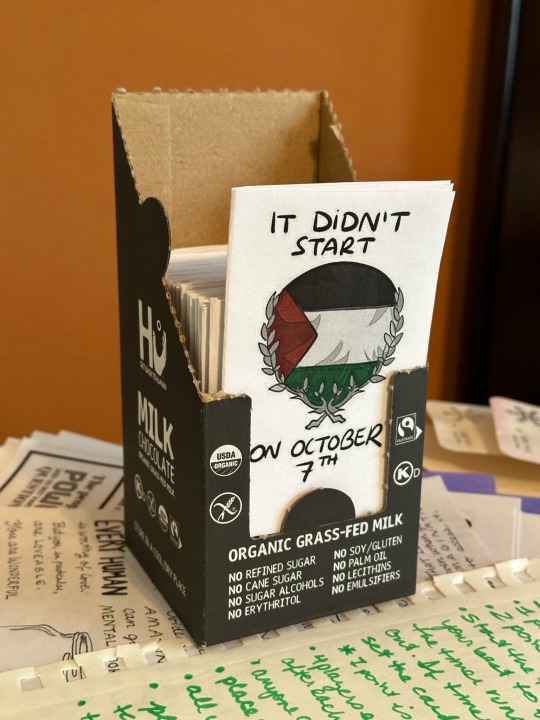
Please help! I want to donate several zine holders to local places and keep them stocked with informational zines. My current plan is to use these chocolate bar dispensers as a template to create more. I’m willing to make or to buy (provided the cost is relatively low). All suggestions welcome! —- zine is by @artistotel, free to download!
#make art#words heal#zines#zinester#zine creator#zinesters of Tumblr#free zine#mini zine#minizine#save gaza#reading makes a difference#reading is revolutionary#reading is resistance#resist#is chocolate complicit or revolutionary#love not fear#free palestine#grass roots#peaceful protest#knowledge is power#zine
3 notes
·
View notes
Link
“In the boat, Mrugank Prabhu unpacks his camera, sets up his telescope, and begins his count.
Prabhu is a scientist with the Bombay Natural History Society (BNHS), a 139-year-old organization involved in conservation and biodiversity research across India, which is leading an ambitious 10-year-long study to monitor a unique phenomenon. Every winter, thousands of greater and lesser flamingos fly into Mumbai, forming a sea of pink against a backdrop of skyscrapers, bridges, and oil refineries along the 26-kilometer-long Thane Creek. The seasonal gathering is a source of wonder in Mumbai, and also a bit of a mystery.
The flamingos only began visiting Mumbai in significant numbers in the 1990s. As the city grew in the 1970s and ’80s, so did the volume of untreated sewage flowing into Thane Creek, nurturing the algae that are the flamingos’ main food and turning the area into a feeding ground for the birds.
Their numbers have increased in the past two decades, from at least 10,000 in 2007 to an estimated 130,000 this year.
The phenomenon illustrates the wealth and complexity of urban coastal ecosystems in India, say experts. Sometimes, “human impact results in conditions that seem terrible for nature at a glance, but are actually a gold mine for some species,” says Sunjoy Monga, a veteran local naturalist and BNHS member who has also led a study on Mumbai wildlife. “There is so much organic richness amid the gloom [of the city].”
Now, the flamingos are reshaping the ecological mindset of the city, too, showing what wildlife can do for conservation even in the most pressured environments. Flamingos have become a source of pride for locals. In the past few years, citizens have been holding annual flamingo-themed festivals and runs to raise awareness of local wetlands. In 2018, authorities designated almost 1,700 hectares of the creek and shore as a flamingo sanctuary...
--
On Earth Day, April 22, a small group of upper-middle class residents meet on a trail along a dense patch of mangroves in Navi Mumbai, the town on the eastern banks at the mouth of Thane Creek. This and nearby mangroves and shallow ponds provide roosting sites for the flamingos when high tide covers the mudflats. The residents, members of Save Navi Mumbai Environment, a citizens’ network to protect local mangroves and wetlands, introduce themselves and describe their path to environmental activism. Many of them were first moved by the destruction of greenery in their own backyards; one professional, who brought his young son along, says he got involved after losing a local pond to a development project. Another man says he and his wife traveled to Lake Nakuru in Kenya to see flamingos some years ago, unaware of their presence in his own city. “What fools we were,” he says.
After the meeting, Sunil and Shruti Agarwal, cofounders of Save Navi Mumbai Environment, take me up to their apartment, one of hundreds in the high-rises bordering the wetlands along the creek. From their 13th-floor balcony, you can see the mangroves that got them involved in environmental activism and, at high tide, the flamingos that brought others to their cause.
Soon after the Agarwals moved here in 2013, they challenged the clearance of land for a new housing project and golf course on these wetlands. Neighbors told them they couldn’t win — the project was promoted by a subsidiary of the powerful Adani Group. But in 2018, the Bombay High Court stopped the development, giving the couple their first big victory. Since then, they’ve been fighting against other development projects in nearby wetlands and raising awareness about local biodiversity. They roped in their son and daughter and their friends to help organize neighborhood festivals with games and activities for children, as well as an awareness-raising annual marathon called Run for Flamingos. At least 2,000 people participated in the event in 2020. “Nobody’s going to run for wetlands,” says the Agarwals’ daughter, Surabhi.
Authorities at the sanctuary, which is managed by the state forestry department, are also promoting restricted tourism around the flamingos, hoping to educate the public about the birds and their habitat. Before the COVID-19 pandemic, a new marine education center and flamingo boat rides attracted some 17,000 visitors annually, including busloads of school students, says Virendra Tiwari, the senior forest officer who oversees the sanctuary. The unit has an ambitious management plan for the sanctuary that includes increased security to prevent illegal construction, a big museum on the banks of the creek, and more boats for rides—but not so many that they would disturb the birds, says Tiwari.” -via Reasons to Be Cheerful via Hakai Magazine, 1/11/23
(See the article for some stunning photography!)
#india#mumbai#navi mumbai#environmentalism#flamingo#grass roots#grassroots#migratory birds#urban ecology#good news#hope
19 notes
·
View notes
Text


















"Waldreg"/ Geoff Morell Impressions
#Waldreg#Geoff Morell#the next (old) Elendil?#Rings of Power casting#Sergeant Mark Jacob#Blue Heelers#Cloudstreet#The Mule#Rogue#Bordertown#Blackrock#Murder Call#Grass Roots#Farscape#Changi#Ten Empty#Sea Patrol - LCDR Jack Freeman
14 notes
·
View notes
Text
youtube
Song Review: Leftover Salmon feat. Oliver Wood - “Fire and Brimstone”
Singing co-leads and playing some slick guitar, Oliver Wood fairly transforms Leftover Salmon into an entirely new dish on the latter’s remake of “Fire and Brimstone.” 
This version is based on the Neville Brothers’ arrangement of Link Wray’s number. And the result sounds more like the Wood Brothers than Salmon on this third advance single - read about the previous releases here - from the guest-heavy Grass Roots, which arrives May 19.
Don’t be fooled by the album title. “Fire and Brimstone,” despite some banjo buried deep in the mix, is not rooted in bluegrass. This is funk, brother - infused with syncopated drums, clavinet and slide guitar - via the Nevilles and the Woods.
Leftover Salmon is basically the backing band on this one.
Grade card: Leftover Salmon feat. Oliver Wood - “Fire and Brimstone” - B
5/9/23
#Youtube#leftover salmon#oliver wood#fire and brimstone#grass roots#link wray#the neville brothers#the wood brothers
3 notes
·
View notes
Text
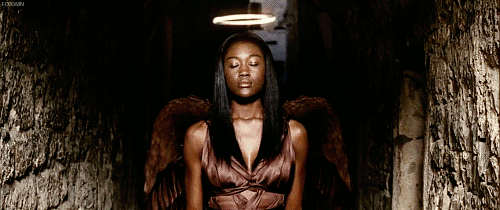


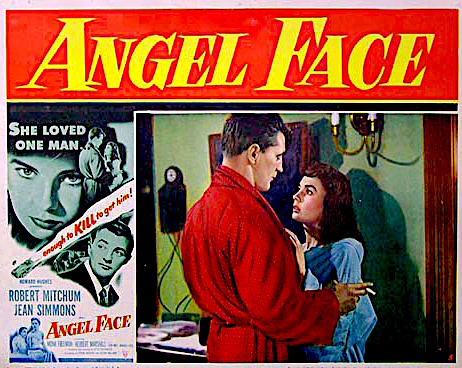
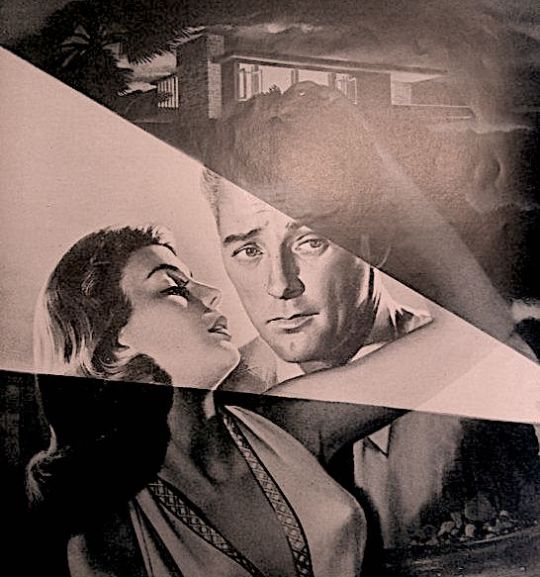

MONDAY MATINEE MUSIC VIDEO: “Angel Face” by Tim Andrews & Paul Korda. https://www.youtube.com/watch?v=iPTviPx3d8Y This “hippie noir” video is based on a record released in November 1968—some British blue-eyed soul on the same page as Motown, The Four Seasons, and The Grass Roots from America. “Angel Face” is from a series of singles featuring the Tim/Paul team. Tim (real name Chris) already had notoriety as lead vocalist/guitarist in the psychedelic bands Les Fleur de Lys (“Mud in Your Eye”) and Rupert’s People (“Reflections of Charles Brown”), but managers and Parlophone Records encouraged Tim to break out as a solo act, even marketing him as a “teen idol.” He was partnered with the multi-talented Paul Korda, on the rise as a producer, singer-songwriter, and actor who was in the original London cast of the musical HAIR and later appeared in major films (PIRATES OF THE CARIBBEAN, SPINAL TAP)—Paul went on to work with Roger Daltrey, Love Sculpture, and Frankie Valli while Tim/Chris went on as a solo + collaborating with Daltrey, David Essex and Davy Jones (Monkees).
Paul produced this track with orchestration by Cy Payne (whose eclectic resume included the anthemic hit “United We Stand” by Brotherhood of Man). The exuberant drumming was by session legend Clem Cattini. Recording took place at Abbey Road Studio 2, where Chris and Paul were invited to listen in on Beatles’s "white album" sessions next door in Studio 1. The exuberant and well-performed “Angel Face” is a great piece of mod-era Britpop that stands the test of time.
youtube
#timandrews #chrisandrews #paulkorda #angelface #fourseasons #4seasons #mod #grassroots #parlophone #britpop #singersongwriter #davyjones #monkees #beatles #whitealbum #abbeyroad #clemcattini #cypayne #robertmitchum #jeansimmons #chamberpop #music #video #london
#singer songwriter#music#monkees#pop rock#chris andrews#davy jones#Tim Andrews#Chris Andrews#Paul Korda#Robert Mitchum#Jean Simmons#britpop#Abbey Road#Beatles#White Album#Parlophone#Clen Cattini#Cy Payne#chamber pop#Grass Roots#4 Seasons#Four Seasons#Youtube
3 notes
·
View notes
Text
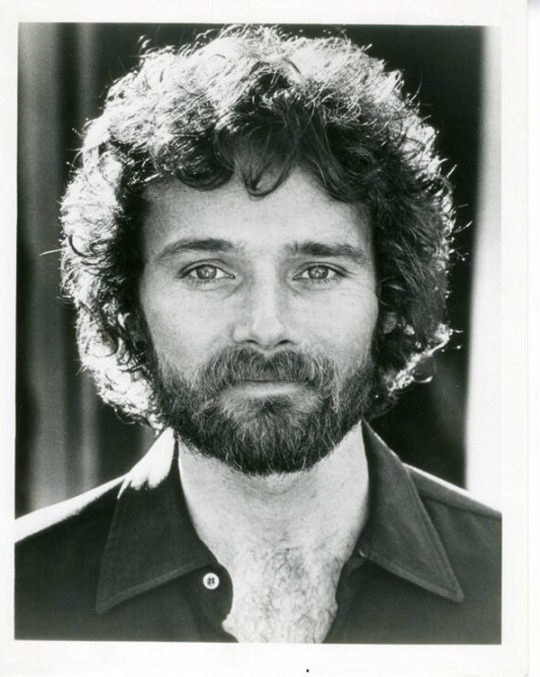
4 notes
·
View notes